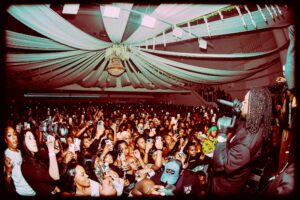Venezuela in the hands of Mr Maduro
THERE’S little doubt that late Venezuelan President Hugo Chavez, having accepted his fate, was trying to prevent power feuds inside his Government after his demise, by naming Mr Nicolas Maduro as his successor.
President Chavez’s endorsement, we recall, was glowing, as he described the 50-year-old Mr Maduro as “a complete revolutionary, a man of great experience despite his youth, with great dedication and capacity for work, for leading, for handling the most difficult situations”.
Mr Chavez would also have been swayed by his long friendship with Mr Maduro which, we are told, dates back to 1992 when Mr Chavez was imprisoned for an attempted coup and Mr Maduro campaigned for his release.
That Mr Maduro was a bus driver who climbed through the ranks of the political system to become Venezuela’s vice-president, foreign minister, and one of Mr Chavez’s closest advisors would also have appealed to the president’s supporters and, in fact, has been highlighted by Mr Chavez himself as an example of the ‘people power’ preached by his Bolivarian Revolution.
Mr Maduro, it is said, lacks Mr Chavez’s charisma. In fact, all the reports we have read of him so far suggest that he’s not a firebrand socialist like Mr Chavez. However, he has earned a reputation for diplomacy — always open to dialogue, according to one Venezuelan political scientist — and has played a significant role in forging ties with countries critical of the United States.
Given Mr Maduro’s seniority in the Venezuelan Government, we are not surprised that he would strengthen ties with states that hold no favourable view of the US. However, we are concerned by his sabre-rattling hours before he informed the Venezuelan people, and indeed the world, of the death of President Chavez.
In comments reminiscent of the Cold War era, Mr Maduro accused the United States of plotting against Venezuela and, most ridiculously, of causing President Chavez’ scancer. He topped off his verbal attack with the announcement that Caracas had expelled an American Air Force attaché.
As if that were not enough, he went on the attack again last Friday after being sworn in as president, slamming the US Government, as “imperialist elites”.
If, after all that, anyone doubted that Mr Maduro was using Mr Chavez’s death to campaign for the upcoming presidential election, they would have been divested of that doubt when he claimed the allegiance of the Venezuelan army, calling it “the armed forces of Chavez”, then raising his clenched fist.
His show of ‘Chavizmo’ will no doubt win him the election, but, by his rhetoric, Mr Maduro has basically set the tone of his presidency, which will obviously maintain his predecessor’s hostility towards the US and its allies.
It is indeed unfortunate that Mr Maduro thinks it necessary to embark on this silly path in order to be elected to office. There really is no need for it, even if he fears the more radical members of the Government. For we suspect that, having been anointed by President Chavez, Mr Maduro will win the presidential election, especially with a large bloc of sympathy votes in the wake of Mr Chavez’s passing.














